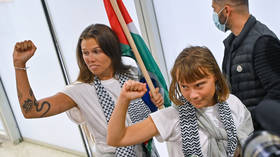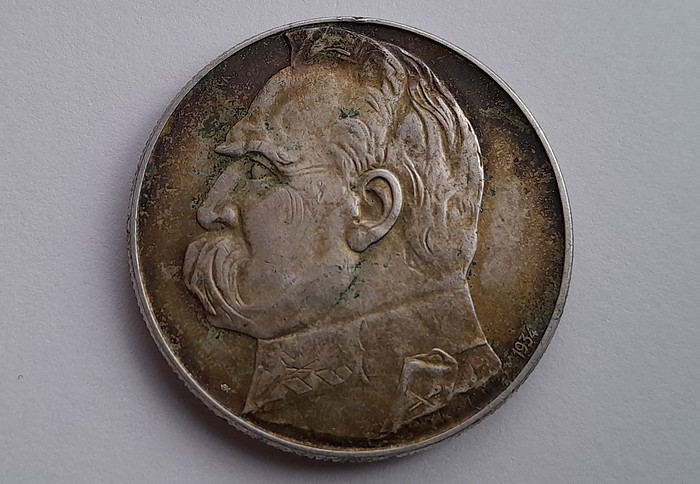The book Alexander Dugin's book "The Manifesto of the large Awakening and Writings of the Time of War" published by the Bibliotek of thought by the Polish Library revived interest in the Russian thinker.
The evidence of this is, among others, Konrad Węsa's dispute with Magdalene and Adam Wielomski for Poland's place in Dugin's thoughts.
One thing that should be stressed is that the author's views of this book have been subject to constant evolution and change, sometimes radical, since the beginning of his scientific-publicist and political activities – that is, since the late 1980s. There were already respective books and respective 100 articles for the publication “Manifest...” in the philosophical-political and cultural-civilization achievements of Dugin. They do not represent a coherent line of development. In many of them the author proclaims views contrary to those contained in earlier or later positions.
An additional obstacle in the unambiguous definition of Dugin's relationships with contemporary Russian philosophical-political and cultural thought is the syncretism of his investigation workshop, sometimes resembling a postmodernized instrumentarium for combining internally contradictory analyses and interpretations, and hypotheses based on them.
A crucial evidence to this is that of the fewer permanent data of Dugin's thoughts – clearly explained in the "Basics of Geopolitics..." – the thought of Russia as a nation-imperium, carrying God within itself. Dugin took her straight from Fyodor Dostoevsky – among others, from the fresh “Biesy” in which Shatov talks about Russia-Godfather. This Byzantine theological-eschatological prevenience of Russia as an imperium nation and at the same time a God-nation connects Dugin with the Turkish concept of controlling the space of Eurasia. The regulation supported by fundamental religions for this civilizational space: Islam and Buddhism. specified a constructed thought of the Eurasian Empire as an alternate to American transatlanticism is not, contrary to appearances, an inclusive idea. On the contrary, it is built on exclusivity, which marginalizes ineffective in the implementation of this concept criteria of Latin civilization.
Hence our Polish regrets to Dugin, that he does not see for us – “Latins” – a place in his project. The author of the Geopolitics Foundation nullifies Latin civilization not only at the historical, but besides at the anthropological and axiological level. However, this is not due solely to his polonaphobic weaknesses. It is besides the consequence of our civilisational weakness. Dugin is aware that Christian Europe's foundations were destroyed not by communism and communist totalitarianism, but by liberalism promoted under the transatlantic option, and in peculiar 2 of its civilizational vectors: anti-national cultural revolution and sex ideology. And although these 2 vectors are inactive facing conservative environments, the transatlantic policy itself has besides fallen – in total, all ideological-political options in Poland.
Dugin knows this and simply realistically evaluates our civilization-geopolitical situation.It awakens legitimate criticism in the environments of our conservative intelligence, but should not rise large concerns. Above all, due to his The concept of the Eurasian Empire bears the mark of another utopian imagination of Russia – removes 1 of the most valuable aspects of Russian spiritual identity – the thought of Moscow III of Rome. This geopolitical-messianist concept of Russia was reflected above all in Dugin's earlier works, including: "The Ways of the Absolute", (1989), "The Masterium of Eurasia" (1989), "The Conservative Revolution" (1994), "The Absolute Homeland" (1998).
The interest in Dugin in Poland was born in the late 1990s – originally in universities. A typical in this respect was the then-shaping culturalist community with a Russian profile – distinct from Russian philology – at the Jagiellonian University. Information on the Duginian concept of geopolitics and geocivilization or Russian geoculture was included in the programme opened in 2000. au Faculty of global Studies and Political Studies of the Jagiellonian University the first Russian studies in Poland. Their adepts in lectures on the ideas and ideologies of contemporary Russia could learn about forms of current Eurasianism and Dugin as his representative. As early as the first decade of the 21st century, respective master's papers were created at the Institute of Russia and east Europe of the mentioned Faculty, presenting Dugin's thought. besides in the achievements of the professors of this Institute – Luciana Suchanka, Hanna Kowalski-Stus, Anna wound – There have already been publications discussing his views.
Professor H. Kowalska-Stus's doctoral thesis deserves attention here Catherine Walasek "Postzimno-modern geocultural and geopolitical projects as an effort to specify the cultural identity of contemporary Russia". I was a reviewer of this work, defended by the author at the Philosophical Faculty of the Ignatianum Academy in Krakow in 2016. I judged the work highly, among others, due to its innovativeness on Polish grounds. Dugin only appears in the 3rd chapter, presenting the issues of neo-bizantinism, Neo-Eurasianism and Neo-Asianism. That's why I was amazed that he had a second reviewer on his head – Dr. Anna Zyrkova, presently prof. Ignatianum Academy. The reviewer stated that due to her political views – fascist – the Russian thinker had no right to be the subject of an analysis of the doctorate K. Walasek and on 30 pages she tries to prove that no chapter of it is scientific.
This review as a paper already archived has a curiosity. From Ukraine, her author, habilitated on the KUL based on respective philosophical articles: Jan Damascenski, Clement Alexandrian and Plotina had the courage to comment on problems she had never dealt with. Fortunately, the 3rd reviewer – prof. of doctrine from the University of Warsaw Janusz Dobieszewski very positively assessed the reviewed doctorate, in an highly competent and nonsubjective way; he was not afraid of Dugin. The Council of the Philosophical Faculty of the Academy of Ignatianum besides positively assessed the work and its defence in the secret ballot, giving K. Walasek a doctorate in cultural studies (now learning about culture and religion).
This review incidental concerning Dugin did not halt the activities of a Ukrainian student harmful to our science. shortly she wrote another negative review of her doctoral work – this time about mass culture and creativity Vladimir Wysocki – and another occupation held six months (breaking the Higher Education Act) and gave the doctorate without a review. The problem of the impunity of anti-Polish Ukrainian lobby proceedings at our universities deserves to be discussed separately. However, this case fits into the reception of Dugin's thought on Polish grounds. In fresh years, the environment of Xportal, the Polish Geopolitical Society, has besides contributed to it. Dr. Leszek Sikulski at the head, konserevatism.pl. or yet “Polish Thoughts”. At the reception of this most crucial for us is antiliberalism and anti-globalism Dugin in the anti-Atlantic version, for which Poland is not prepared in any dimension. besides crucial is Russia's planetary mission in building an Eurasian empire where there is no place for us.
Less controversial than Dugin is another antiliberal and opponent of American globalisation – Alexander Panarin, died in 2003 philosopher, prof. of Moscow State University M. B. Lomonosov. Panarin is the most implacable critic of liberal globalism, whose in-depth analysis gives, among others, the work “The Temptation of Globalism”.
Originally, the central point of his fight against American globalisation is the thought of a second Rome, which he lectures in "Philosophy of Politics". It is an alternate to the first Rome, whose construction was undertaken after planet War II by the United States. The first Rome from the beginning was meant to form a unified Western civilization space, which would make the American planet order – economical and civilization. It took a real form after the end of the Cold War, erstwhile America declared a triumph of the thought of liberal globalisation, which, having no alternative, marked the end of the story, announced by Francis Fukuyama.
Panarin believes the triumph was announced prematurely. past teaches that 1 planet state is unrealistic. This is indicated by the past of ancient Rome, which had to divide and admit a separate field for Constantinople as the second Rome. The United States will gotta accept the sharing of work for the fresh planet order with Russia. For the Atlantic basin, the centre should inactive be Washington and for Eurasia Moscow. The concept of the second Rome is so typically eurasian. In his next work, he undertakes the thought of Moscow III of Rome, as a consequence to the ruthlessness of American globalisation, which not only takes Russia to the margins of planet politics, but even threatens its existence. Moscow as the 3rd Rome becomes at the same time the leader of the 3rd world, the leader of not only marginalized societies, but besides pushed to the level of the conflict for biological survival. Moscow's task in this function is not only to dismiss the global confrontation, but to yet prevent it. The so formulated mission of Russia differs Panarina from Dugin, who not only assumes a confrontation, but besides pursues it.
An crucial component of the Panarin concept of breaking the hegemony of America is the thought of civilizational messianism of Russia towards the 3rd world. Ethical messianism plays an equally crucial function in the Panarina concept. It comes down to the thought of moral aid and defence of this planet against the economical totalitarianism of America, as the author of “The Temptations of Globalism” calls the American direction of development. It besides includes defence against American culture-phobia. The latter, as it says in that book, means America’s fear of the culture of another nations and of advanced spiritual values. The witness to this fear is the anti-religious culture of postmodernism and its accompanying ideology of political correctness which led the planet to the American “metaphysics of voidness”.
Ethical messianism besides includes the fight against the "fifth power", provided by classified experts and transnational peculiar services. "Fifth power," he emphasizes in "The Temptation of Globalism" is the globalisation of specsługs. They yet decided on the United States' position in the world. This power, classified, well camouflaged, armed with modern technologies is 1 of the most hard problems of modern times. The fight against it must be about exposing its unethical face and the nonsubjective of social segregation throughout the world. American Globalism – concludes Panarin – carries a fresh kind of racism: social-material, dividing the planet into mediocre and rich. Russia's moral task in this situation is to defend the weak and the mediocre from the rich and the strong.
The ethical component of the anti-globalistic program for Russia brings Panarina closer to Solzhenikin. At the same time, it draws distant from it an component of imperial-geopolitical messianism, alien to the author of the "Gulag Archipelago". This component in most of Panarina's works takes on a fresh form of Russian idea, closely connected with the basic determinant of all geopolitics – with the thought of large space. He besides connected Panarina to Dugin. However, there are various crucial “economics of mercy” for Poland, which does not exclude our nation and country from the list of its participants.
Unfortunately, Poland does not have its Sołzenicin or Dugin and Panarina. Americanized and enslaved by political correctness – and late false punishment – Polish universities are incapable to make a framework for the improvement of our sovereign political and civilizational thought. They are not even able to organise an nonsubjective debate on American globalisation and transatlanticism – on the 1 hand, on Russian Eurasianism on the other.
Prof. Anna Raźny
Think Poland, No. 51-52 (18-25.12.2022)


















